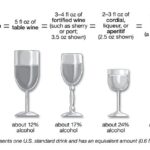Protein is essential for muscle growth, but how much do you really need? This guide breaks down the science-backed recommendations for optimal protein intake to help you achieve your muscle-building goals. We’ll cover everything from calculating your individual needs to choosing the right protein sources and timing your intake for maximum impact.
Why Protein is Your Muscle-Building Ally
Protein is the building block of muscle tissue. When you engage in resistance training, you create microscopic tears in your muscle fibers. Protein, specifically the amino acids it contains, helps repair and rebuild these fibers, making them stronger and larger over time. This process is known as muscle protein synthesis (MPS). But protein’s benefits extend beyond muscle growth. It plays a vital role in enzyme production, hormone regulation, immune function, and more.
Calculating Your Ideal Protein Intake for Muscle Growth
The million-dollar question: How Much Protein Should You Eat To Gain Muscle? According to experts, aim for 1.4 to 2.2 grams of protein per kilogram of body weight per day.
- Convert pounds to kilograms: Divide your weight in pounds by 2.2.
- Multiply by your target range: Multiply your weight in kilograms by 1.4 for the lower end of the range and 2.2 for the higher end.
For example, a 180-pound (81.6 kg) individual aiming to build muscle should consume approximately 114-179 grams of protein daily.
It’s important to note that the Recommended Dietary Allowance (RDA) of 0.8 grams of protein per kilogram of body weight is a minimum requirement for sedentary individuals. Active people, especially those focused on muscle growth, need significantly more.
Are You Eating Too Much Protein?
While protein is crucial, more isn’t always better. Exceeding 2.2 grams per kilogram of body weight is unlikely to provide additional benefits for muscle growth. Excess protein can displace other essential macronutrients like fats and carbohydrates, potentially leading to hormonal imbalances, nutrient deficiencies, and digestive issues. Furthermore, some studies suggest that very high-protein diets, particularly those rich in red meat, may be associated with an increased risk of heart disease and certain cancers. It’s crucial to strike a balance and ensure a well-rounded diet.
The Importance of Post-Workout Protein
Consuming protein after exercise is key to maximizing muscle repair and growth. Aim for 20-40 grams of protein within 30-45 minutes after your workout to stimulate MPS. As we age, our bodies become less efficient at utilizing protein, so individuals over 40 should lean towards the higher end of this range (around 40 grams). Some research even suggests that a 40-gram dose may be more effective than a 20-gram dose for stimulating MPS in resistance-trained individuals.
Maximizing Muscle Growth with Different Protein Sources
Not all protein sources are created equal. Complete proteins, found in animal products like meat, fish, dairy, and soy, contain all nine essential amino acids, including leucine, a key trigger for MPS. Plant-based protein sources can also be excellent, but they may have lower concentrations of leucine. Vegans and vegetarians may need to consume a greater volume and variety of plant-based proteins to achieve the same benefits as animal sources.
When choosing protein supplements, opt for a blend of plant-based proteins, such as pea and rice protein, to ensure a more complete amino acid profile. Look for products certified by organizations like the National Sanitation Foundation (NSF) to ensure quality and purity.
Adjusting Protein Intake with Age
As we age, we naturally lose muscle mass. To combat this age-related muscle loss, older adults generally need more protein than younger individuals. The recommendation for sedentary older adults increases to 1-1.2 grams of protein per kilogram of body weight per day. For older adults actively trying to build muscle, the target range remains similar to younger adults, at 1.6-2.4 grams per kilogram.
Other Key Nutrition Tips for Muscle Growth
Protein is essential, but it’s not the only factor in muscle growth. Consider these additional tips:
- Calorie Intake: Consume enough calories to fuel your workouts and support muscle growth. Protein will be used for energy if you don’t eat enough calories.
- Evenly Distribute Protein: Spread your protein intake evenly throughout the day, aiming for 20-40 grams per meal, as the body can only efficiently absorb a certain amount of protein at one time.
- Prioritize Leucine-Rich Foods: Include leucine-rich foods in your diet to maximize MPS. These include beef, chicken, fish, eggs, dairy, soy, tofu, and legumes.
The Bottom Line
Determining how much protein you should eat to gain muscle is a personalized process. By understanding your individual needs, choosing high-quality protein sources, and timing your intake strategically, you can optimize your muscle-building efforts. Remember to consult with a registered dietitian or healthcare professional for personalized guidance tailored to your specific goals and health status.
